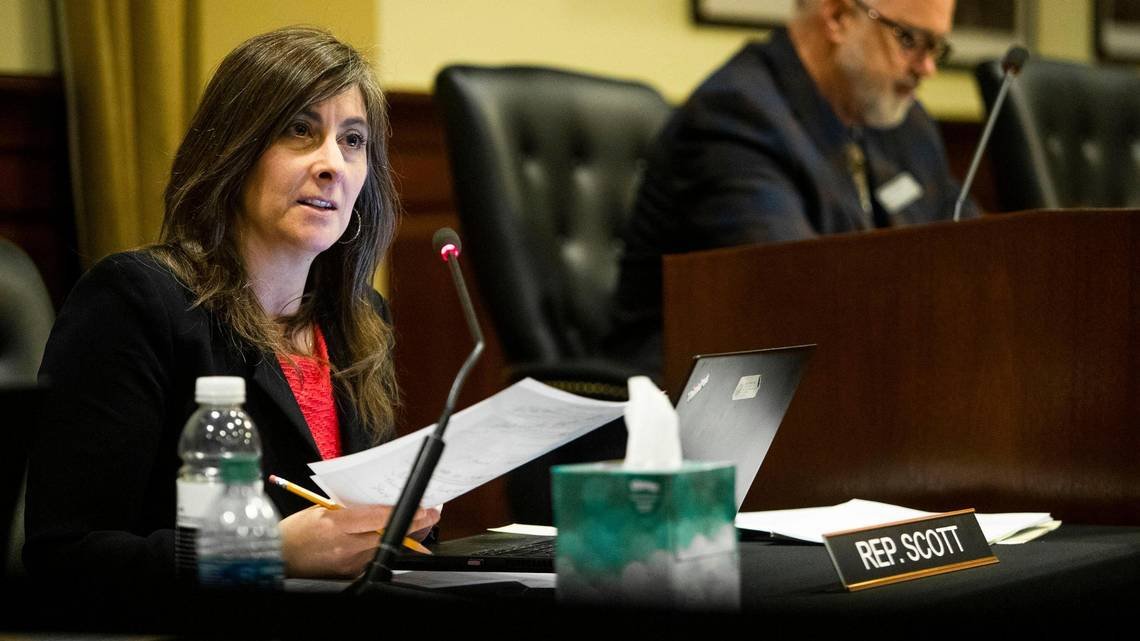Lawmaker introduces anti-cannibalism bill after seeing prank show in which no human flesh was consumed
A bill was introduced in the House State Affairs Committee on Thursday, Feb. 8, which aims to add language to Idaho's cannibalism law, which already outlaws "any person who willfully ingests the flesh or blood of a human being."
House Bill 522, titled "cannibalism," was written and introduced by Republican Representative Heather Scott. The bill aims to expand the definition of cannibalism to include the provision of human flesh or blood to others, specifically, "providing flesh or blood to another human being without their knowledge or consent."
Rep. Heather Scott, R-Blanchard, on Thursday introduced a bill that would expand Idaho’s ban on cannibalism based on a video she saw on an airplane. The video is a prank.
Back in the late 1980s, there was a scare about satanic rituals and investigations nicknamed the "satanic panic." In 1990, cannibalism in Idaho was outlawed with the passing of the bill titled "Mayhem."
After Representative Scott introduced the bill on Thursday at the podium, she stated two reasons for the creation of the bill.
Firstly, she said, "In 2019, I heard that Washington state was starting to do human composting, and that disturbed me. I wanted to address this because what I didn't want to see was bags of compost with human bone fragments."
Human composting is a permitted practice in several states, including Washington, but the remains are not bagged. A quick Google search shows that they're being spread in a forest outside Battle Ground, Washington, to help recover the area from logging, according to Recompose Life's website.
Representative Scott said she wants to stop human composting from getting into the food supply.
Recompose Life's website states that human compost is spread around in several spots to support plant life but is not used for food production.
Representative Scott's second reasoning for the bill is due to a video she saw posted on social media a month ago about a food show that said the secret ingredient was human flesh. But it was revealed to the food contestants that it was a part of a prank show by David Spade called "Fameless."
Representative Scott has refused to comment on the matter to media.
House Bill 522 was printed, and the verdict is out on whether or not it will get a public hearing.
Bill, and Lawmakers, Draws Criticism from Citizens
Editorials and op-eds across the state have showed extreme exasperation that this bill wasted time during a legislative session with so many more relevant and topical matters to discuss.
Scott’s bill is based entirely on a video-recorded prank that Scott couldn’t even have been bothered to research—an issue that isn’t even happening.
“But that’s where we are in Idaho: Unhinged, unreal legislators can bring forth just about any crazy idea and get a bill printed. It’s a perfect example of how completely delusional some of these people have become. Even after hearing Scott’s nonsense, legislators actually seriously debated it and voted to print it. They wasted time on this nonissue and then voted to waste more time on it. No one on that committee had the fortitude to look around and say: “Hold on a minute. This is crazy talk. Let’s move on to talking about actual problems.”
This was not worth the time or consideration of lawmakers who are supposed to be doing the people’s work. It’s an embarrassment to the House State Affairs Committee. But worse than that, it’s an embarrassment to Idaho.”


